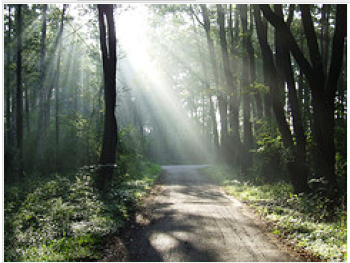 September 2011
September 2011
Trial to Education Complete
The library currently has a 60-day trial to a resource from EBSCOhost called Environment Complete. This
database contains full text for over 900 journals and provides informational access to a wealth of other journals.
According to EBSCO’s website, Environment Complete covers topics related to “agriculture, ecosystem
ecology, energy, renewable energy sources, natural resources, marine & freshwater science, geography, pollution
& waste management, environmental technology, environmental law, public policy, social impacts, urban
planning, and more.”
How You Can Help
We need your feedback! Let us know what you think of this resource. Will it be helpful to you in your
research? Does it provide access to information you cannot find elsewhere? Please email Amy Lee Heinlen
at aheinlen@chatham.edu or submit a comment through our comment form, and let us know what you think.
Your feedback will greatly help us as we decide whether or not this resource would be a good addition to our
collection.


2012 marks the 50th anniversary of the publication of Silent Spring and the Jennie King Mellon Library is celebrating this milestone with a first floor exhibition of archival first editions, photographs, and papers from the Rachel Carson Collection housed in the Chatham University Archives. From now through January 30th, you can view images of Carson when she was a student at Pennsylvania College for Women in the late 1920s, a signed first edition of Silent Spring, a letter written by Carson, and materials documenting the book’s impact. The display also includes copies of Silent Spring available for checkout. One of the most important works of the twentieth century, Silent Spring was first serialized in three issues of The New Yorker beginning in June of 1962 and was published in book form later that year. Many cite the publication of Silent Spring, which called attention to the destructive impact of pesticides on our air, land, and water, as the foundation of the modern environmental movement. In response to the public outcry the book created, President John F. Kennedy formed a special government group to investigate the use and control of pesticides, and Carson testified before Congress in 1963 about new policies to protect the environment and the population. As a result of these efforts, DDT, a pesticide discussed in the book was banned in the United States in 1974, and the importance of conservation and environmental protection gained greater recognition in American life.
Commenting on blog posts requires an account.
Login is required to interact with this comment. Please and try again.
If you do not have an account, Register Now.